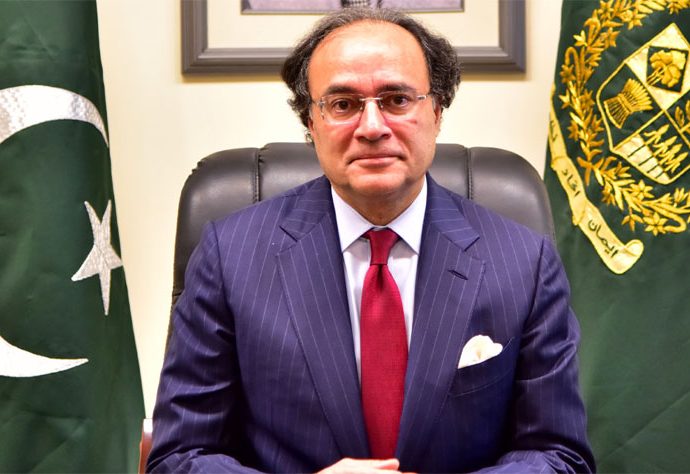ISLAMABAD STAFF REPORTER
Federal Finance Minister Senator Muhammad Aurangzeb has emphasized the growing importance of digital investments in Pakistan, highlighting them as cost-effective, fast, and transparent alternatives to traditional financial models. Speaking at the “Blockchain and Digital Assets: Technology and Innovation” conference on Saturday, the minister stated that 10–15% of Pakistan’s population is already involved in digital business activities, with a sharp upward trend expected in the coming years.
He stressed the urgent need to update digital investment regulations to ensure transparency and investor confidence, noting that policy priorities must align with technological advancement. The government, he said, is committed to facilitating investors and entrepreneurs, with a particular focus on youth involvement.
The finance minister revealed that the government is actively considering crypto mining as part of its economic diversification strategy. A “Crypto Council” has been formed, and work is underway on drafting the Pakistan Virtual Assets Regulatory Authority (PVARA) ordinance. The first meeting on crypto policy matters is scheduled for the upcoming Monday.
Senator Aurangzeb disclosed that between 20 to 25 million Pakistanis are directly or indirectly connected with blockchain and digital assets — a number that reflects the sector’s vast potential. He credited Lahore University of Management Sciences (LUMS) and its partners for launching a Center of Excellence to drive innovation and research in this domain.
Viewing the sector through a regulatory lens, the minister stated that Pakistan, having exited the FATF grey list after a prolonged struggle, cannot afford unregulated financial activities. “We must ensure a strong regulatory framework to avoid falling back into financial scrutiny,” he asserted.
He highlighted that blockchain, AI, and cryptocurrencies are all technology-driven and can be harnessed to improve financial transparency, service delivery, and remittance efficiency — the latter being a vital economic lifeline for Pakistan. The country also plans to utilize its surplus energy for crypto mining and AI data centers.
The minister announced that legislation on blockchain and digital assets is in progress and will soon be presented in the National Assembly and Senate. Pakistan has studied regulatory models from various countries to shape its own comprehensive framework.
Emphasizing collaboration between the private sector, academia, and the government, Senator Aurangzeb called for a phased, experimental approach to integrating cryptocurrency. He concluded by lauding LUMS and other stakeholders for organizing the seminar, underscoring their role in shaping Pakistan’s transition toward a modern, tech-driven economy.


